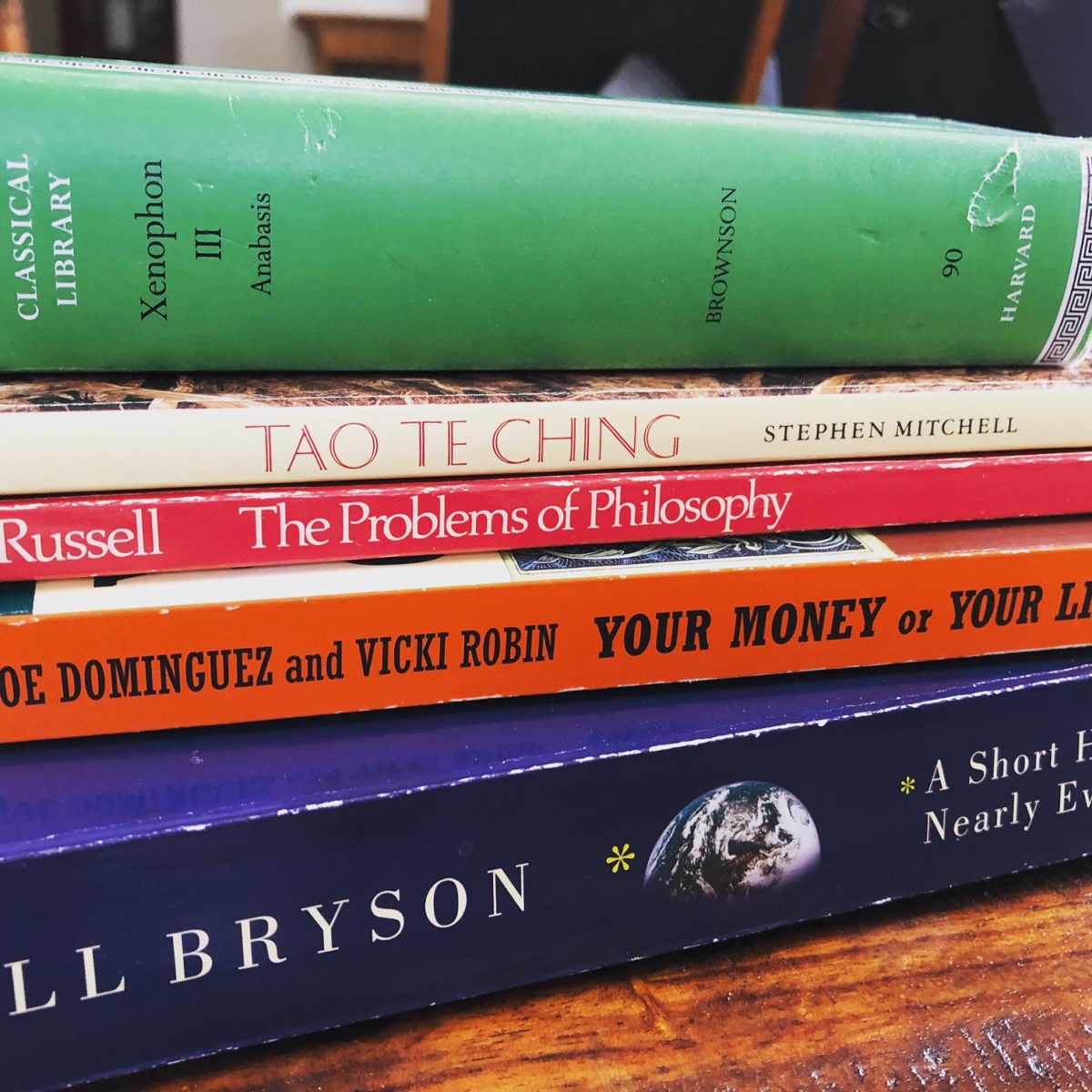Day 5 of the Daily Stoic’s 14 Day Stoic Challenge is to pick 5 books that were impactful in your life and re-read them, with a focus on studying them more deeply than when you last read them. The idea of course being that with each re-read you will get more and different lessons out of them.
I want to elaborate the why behind my selections, and neither the challenge’s Slack channel, nor my remaining social social media channels seem appropriate, so I am putting these here, mainly for myself to be able to come back to after I’ve read each.
Anabasis by Xenophon
Written by the Athenian Xenophon, it details the return trip of a group of 10,000 Greek mercenaries after the defeat of their patron, Cyrus the Younger, in the battle of Cunaxa in 401 BCE, outside Babylon. I originally read this when I was an NCO in the US Army National Guard between deployments to Bosnia and Iraq. I remember being struck by how little has changed in terms of leading people, and human dynamics. Certainly technology has changed, our view of the world has changed, and religious views are quite different, but I remember that the leadership challenges he faced were all too familiar.
I have therefore long considered this to be one of the greatest books on leadership (that you’ve probably never heard of). So I am eager to see how that holds up, and as I served right at the site of Babylon for most of my deployment to Iraq, I am curious to see if re-reading this brings out any other connections.
Tao Te Ching by Lao-tzu
I am using the Stephen Mitchell translation. The Tao Te Ching was the first book I read from a school of belief that was not the Catholic Bible, and it was the start of a reading exploration that ultimately led to me to Stoicism. I remember that I felt like I had found a whole new way to look at the world, and I remember being a little surprised at how much the Tao seemed to have in common with Lucas’s Force. I feel like there is a lot of shared wisdom between Stoicism and the Tao, including the notion that there is no good or bad beyond the value we choose to assign to things. So we will see how that holds up.
The Problems of Philosophy by Bertrand Russell
I remember this book from my first philosophy class in college at the University of Connecticut, and I remember that class being the first time I realized that philosophy was not a stuffy subject for insufferable snobs. That it could both be interesting and a tool for thinking deeply about things we assume, and a way to work on oneself and our beliefs.
Your Money or Your Life by Joe Dominguez and Vicki Robin
I am re-reading my original 1993 version, though I may eventually read the revision that several FIRE thinkers have written about including Mr. Money Mustache, who I read regularly. Reading this set me on the path of my own financial education and led me to take control of all of my own finances, and to buck conventional wisdom on money and investing. I never fully embraced the almost hippy approach of having minimal attachments, no home, travel often, extremely minimalist possession, but it did teach me to value my time carefully and not trade it for things I didn’t need. And I never again took on debt other than a mortgage. I do remember Joe advocating buying 30 years bonds as the means of financial independence, so that part won’t hold up, but I do want to see how much of their thinking remains relevant and how broadly it is reflected in the FIRE community.
*A Short History of Nearly Everything by Bill Bryson
Bill Bryson is simply one of the greatest writers of our time, and I have read nearly everything he has written, but this and A Walk in the Woods are my favorites. This one for the simple fact that it really makes you realize just how much of a miracle just existing really is, for me it was a tonic for being too wrapped up in work and myself. And the stories about the rivalry between scientists and how human they all actually are is just fascinating. (And you have to have some sympathy for someone who has spent their entire professional life invested in something that has turned out to be wrong – you might resist that too.)
I will post back to this as I complete each book and any new observations I have to share.
What will you read?
